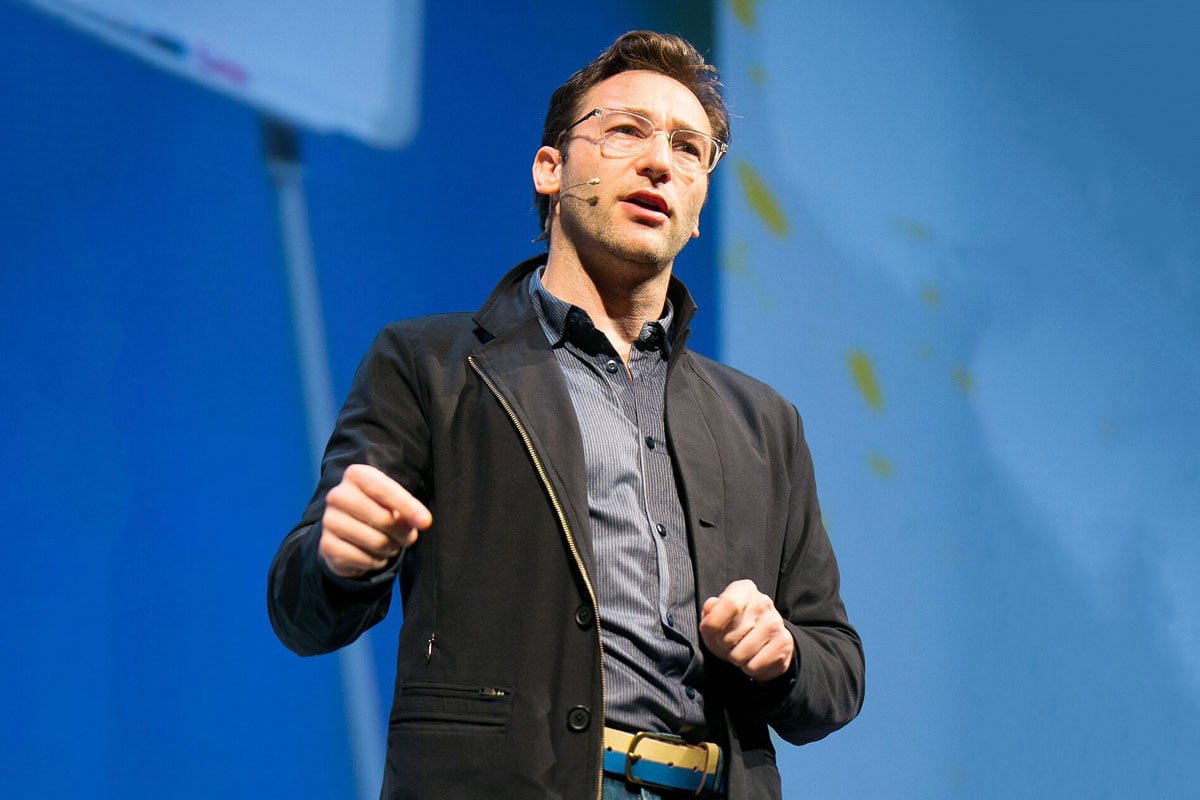Leaders set the tone for how an organization operates; they are part of the foundation that makes up the culture and are key to building an effective team. But what is it about great leaders that separates them from the rest of the pack? Simon Sinek, renowned leadership expert, speaker, and author of three global bestsellers, The Infinite Game, Start with Why and Leaders Eat Last shares 9 key insights that make great leadership.
“Leadership is a team sport. None of us are strong enough or smart enough to do this alone.”
1. Empathy is as important as ever
A trait that still ranks highly in leaders is empathy. When COVID struck, many leaders – even ones who seemed ineffective before – leaned on their own humanity and started checking in on their teams in earnest.
“We don’t need a global pandemic for us to express empathy and check in on our people,” said Simon, adding that this is simply good leadership.
He added, “What I really hope is that the skill, that very human skill of leaning on our own humanity remains in a post-COVID world. Actually, worrying about our people as people rather than just cogs in a machine.”
2. Leadership is a team sport
Explaining the concept of finding and living your ‘Why’, Simon noted that your ‘Why’ is the sum total of your experiences that make you who you are. The rest of your life offers opportunities for you to make decisions that either keep you in balance with that ‘Why’ or not.
As leaders, it’s important to be aware that if you’re feeling an imbalance in fulfilling your why, you should be honest about it to your team and lean on your friends for support. After all, leaders are the ones who set the tone.
Relaying a story about his own experience with this challenge of feeling imbalanced in his ‘Why’ and how it affected his work, Simon said he managed to stay inspired and jump back from a rough patch by talking to his friends and being honest to his team about being off his game.
3. Stay away from toxic positivity
Leading into his next point, Simon explained that leaders who express their humanity and are honest about the challenges they are facing will create an environment where their team feels able to reach out when they are struggling as well.
Toxic positivity – where a leader sees a team struggling or having a high workload but only talks about how everything is going great – can really backfire. If people are struggling but they only see positivity around them, they may think something is wrong with them. They would also feel the need to lie or hide their own challenges. Instead, Simon emphasizes the need for leaders to show their own humanity as it encourages others to do the same.
“It creates an environment in which other people feel safe to tell us they make mistakes or tell us that they’re struggling, and then we can be there to support them, which is ultimately what we want to do as leaders,” he explained.
4. Leaders Eat Last
As he talks about in one of his bestselling books, Leaders Eat Last, Simon explained that good leaders are those who are willing to sacrifice their own interests or bonuses to protect their team in hard times.
“Running a company is an ongoing experience. There are going to be highs and there are going to be lows. And I think as a society we’ve over-indexed on selfishness we’ve over-indexed on prioritizing our self-interest,” he cautioned.
Even so, balancing your own self-interest with that of your team or business remains a paradox, according to Simon. Sometimes, you have to put your own oxygen mask on first. Sometimes, you have to help those around you first. It’s up to you as a leader to figure that out in your own context.
5. Leadership is a choice
On the topic of how to encourage leadership accountability, Simon stressed that anyone can be a leader regardless of their official title or position in the formal organizational hierarchy.
“Leadership is a choice. Whether we’re the assigned leader or not, we still have the opportunity to practice all of the leadership skills that we’ve learned, one of which is making sure that our people feel seen, heard, and understood, and take that awesome responsibility to see those around us rise. That’s what leadership is,” Simon emphasized.
Following that, Simon stressed the importance of rewarding leadership behavior instead of just titles and outcomes to encourage more leadership-like qualities and behaviors in the entire team.
“If someone is showing initiative, stepping up and playing the leader leadership role, then we have to recognize them and reward them regardless of the outcome in the short term.”
6. Business is an infinite game
No one wins in education or learning or even business. Citing philosopher and theologian Dr. James Carr, Simon explained that there are two types of games – finite and infinite. A finite game has fixed parameters and an agreed-upon objective where there is a necessary winner and loser. Importantly, there is a beginning, middle, and end in finite games. On the other hand, infinite games have known and unknown players who can leave or join at any time. The rules are also changeable at any time. The objective, however, is to stay in the game as long as possible to perpetuate it.
When leaders approach business as a finite game but with an infinite mindset, there are some consistent and predictable outcomes such as the decline of trust, cooperation, and innovation.
But if leaders accept that business as an infinite game that no one can win, that sparks a crucial change of mindset in how they operate.
“The purpose of business is to do something and go somewhere, and money is the fuel to do it,” Simon said, explaining that the most successful companies or not ones that are purely driven by making a profit.
7. Leaders must earn trust
Talking about trust, Simon noted that it is important for people to be able to trust those around them as that breeds confidence that they will be supported. In a work environment, people need to feel able to admit their mistakes or that they are struggling to find the answer without fear of being humiliated or having their career impacted in a negative way.
Simon cautioned, “Trust is a very human feeling. It’s not an order.”
He added, “I get a kick out of leaders who say to their people ‘prove to me why I should trust you’. It’s actually the opposite. It’s actually the leader who has to prove why their people should trust them. That’s how an effective organization works. Trust is earned. And it starts with the leader.”
8. Be careful with labelling quiet quitting
Quiet quitting is gaining some buzz recently – the idea that people are doing the bare minimum at work. Simon noted that it’s important to make a distinction between those who are disengaged at work because they are actively making that choice, and those who are going through a hard time. In the latter case, leaders have to step in and check on their teams.
Either way, leaders must lead with empathy in both cases.
“We have to be very, very careful labeling these things as quiet quitting because it is kind of a pejorative,” Simon cautioned.
“People are quiet quitting at every level, and people are just trying to find work-life balance at every level. We have to be able to discern the difference and support,” he added.
9. Business is human
As his final takeaway, Simon reminded leaders that business is made up of people at every step of the way. Ultimately, it is about people, not profit or products.
He said, “Remember that 100% of customers are people; 100% of employees are people; 100% of investors are people. It’s not about the profit, it’s not about the product. When you become obsessed about those things, you’re ignoring the very fact that business is human. And the more you understand human beings, the better you do at business. And by the way, it turns out you’re human too. So, all leaders are people too.”


